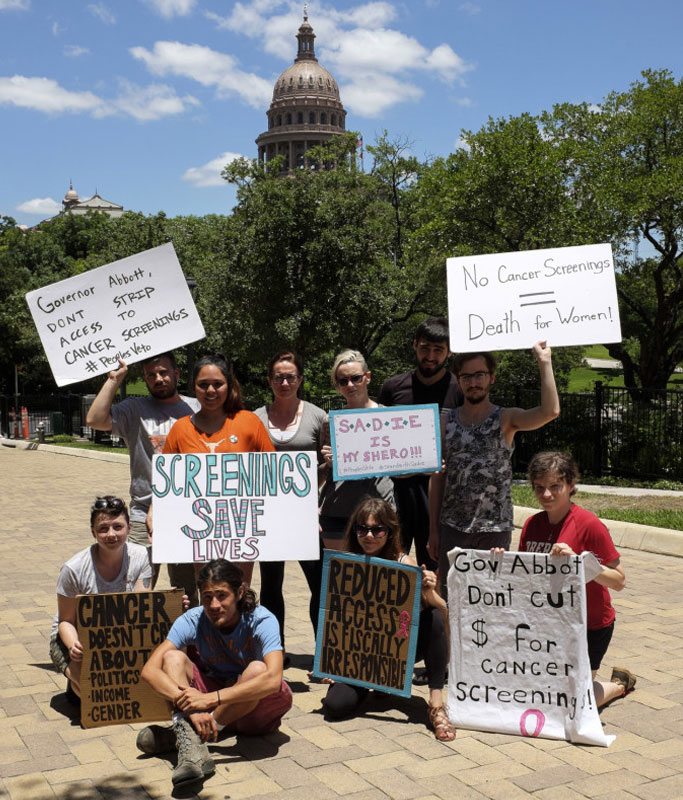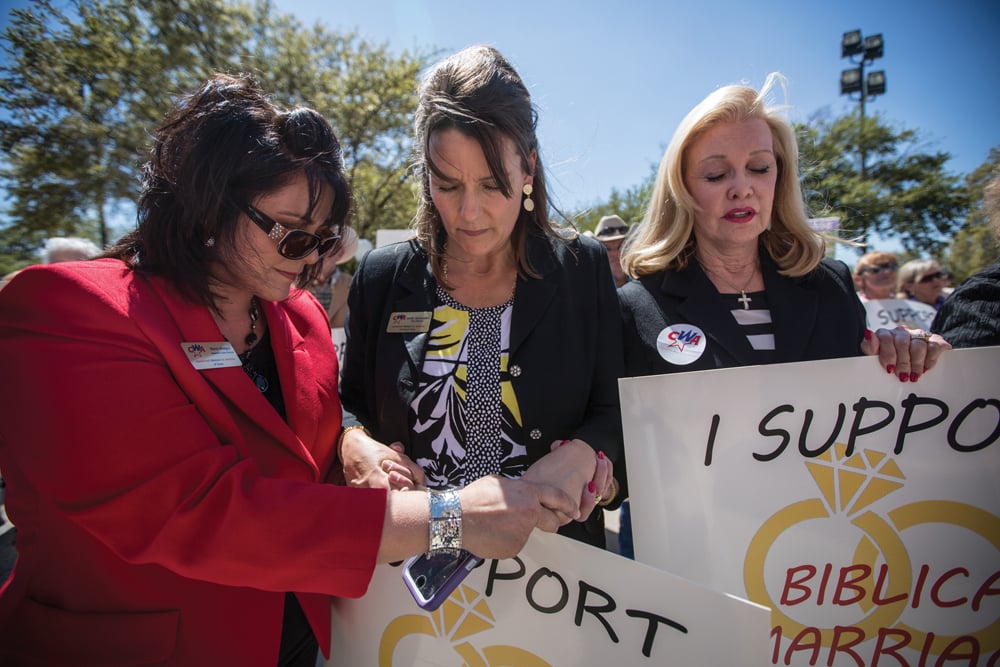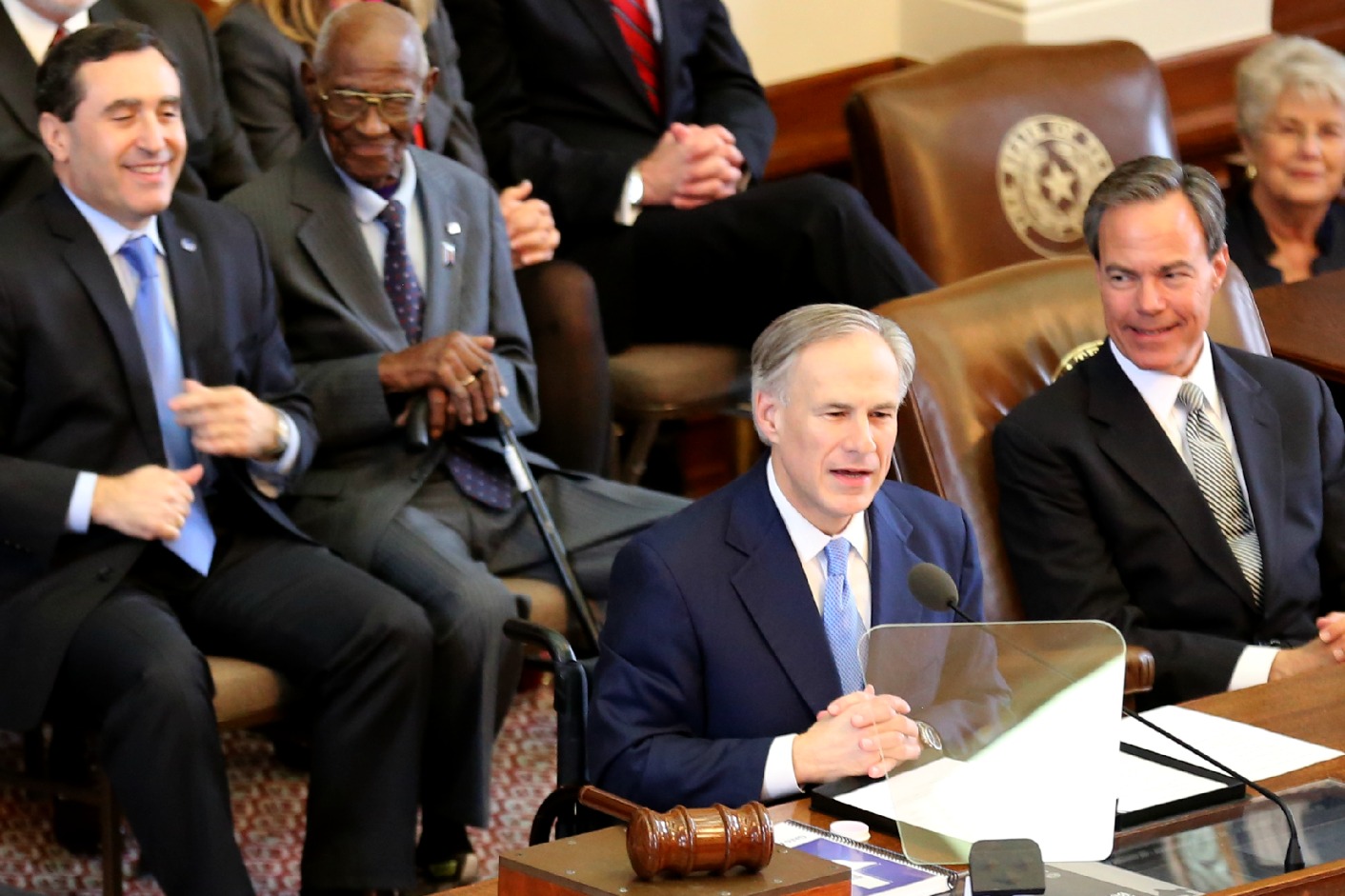
Cancer Survivors Demand Veto of Budget Measure that Excludes Planned Parenthood from Cancer Program

In May 2013, Dayna Farris-Fisher breathed a sigh of relief after her annual mammogram came back clean. But six months later, she found a lump in her breast that alarmed her. Her fears were compounded by the fact that her husband had lost his sales job, and with it, their health insurance. With no coverage, Farris-Fisher, who lives in Plano, found that clinics weren’t interested in scheduling an appointment any time soon.
“The few places that I did find, the wait was about 90 days to get in,” she said. “Finally, somebody said to call Planned Parenthood.”
Farris-Fisher got an appointment with the local Planned Parenthood health center just 48 hours after she first called. The appointment and initial screening she received were covered through the state Breast and Cervical Cancer Services program, and nurses at the clinic then referred Farris-Fisher to other providers for more treatment and helped her find ways to cover the costs.
“If I had waited the 90 days, I would be dead,” Farris-Fisher said, “Between the time that I was initially seen and 60 days later when I started treatment, my mass had doubled in size. … If it weren’t for Planned Parenthood, I would be dead.”
Next week, Farris-Fisher will celebrate the one-year anniversary of being cancer-free. She’s elated to be doing so well, but her happiness is tempered by political machinations in Austin. On Monday, the 49-year-old real estate investor arrived in Austin to join a growing group of activists who have set up camp outside the governor’s mansion near the Capitol.
The protesters are calling on Gov. Greg Abbott to veto a line in the two-year state budget that boots Planned Parenthood from the Breast and Cervical Cancer Services program. About 34,000 uninsured Texas women, including Farris-Fisher, rely on the program for cancer screenings and rapid enrollment in Medicaid to cover additional treatment.
Budget writers acknowledged early in the legislative session that they wanted to keep state money away from health care providers that also perform abortions, even though no public dollars fund the procedure and Planned Parenthood clinics that offer abortions are independent from the organization’s health centers.
While legislators point out that other providers are still available to treat women, activists argue that the state should be expanding access, not reducing it. For example, Planned Parenthood’s Waco health clinic was the city’s only provider through the breast and cervical cancer program.
“Women need practical access, access that’s available quickly, access that’s local, access that’s affordable,” Farris-Fisher said. “Most women that need Planned Parenthood don’t have the wherewithal to get in their car and drive two hours to a clinic after waiting 90 days for an appointment.”
While legislators point out that other providers are still available to treat women, activists argue that the state should be expanding access, not reducing it.
It’s not just cancer survivors who are demanding action. Sadie Hernandez, a spunky 20-year-old Brownsville native and a Planned Parenthood volunteer, kicked off the protest on her own when she decided to picket the governor’s mansion on June 4th.
Since then, the People’s Veto, as activists are calling it in homage to the People’s Filibuster at the Capitol two years ago, has grown to include a dozen or so people at any given time. What started as a one-woman protest has now attracted national attention and drawn the attention of heavy hitters in the reproductive justice world, including Planned Parenthood head Cecile Richards. Hernandez has pledged to stay at the mansion from 7 a.m. to 7 p.m. each day until Abbott makes a decision.
“Cancer affects you in all aspects of your life, mentally, physically, emotionally, financially,” Hernandez said. “I found out that [Abbott] was the only one that can do anything about this now, so I pledged to stand out here every day so that he can get the message that cancer should not be politicized, and that more women should have access to early breast and cervical screenings, not less.”
On Monday afternoon, the activists also delivered a 15,000-signature petition to the governor’s office asking him to act. Abbott’s office did not immediately respond to the Observer’s request for comment.
Cynthia Wilson, who lives in north Dallas and joined the People’s Veto protest on Monday, credits her cancer survival to Planned Parenthood. Wilson, who is a full-time caretaker for her aging parents, was diagnosed with ovarian cancer after receiving an initial screening at her nearby Planned Parenthood health center. Like Farris-Fisher, she’d struggled to find a doctor that could see her right away at a price she could afford. The Planned Parenthood staff was able to refer her to specialists for treatment for the fast-growing, aggressive cancer, she said.
“I feel like I got a miracle to live,” Wilson said. “If they couldn’t have seen me right away and gotten me into the system, I know I would not be here. We need all the screening [providers], not just handpicked ones because someone has decided they don’t want to fund Planned Parenthood.”
The deadline for Abbott to veto legislation passed during the regular session is June 21.


